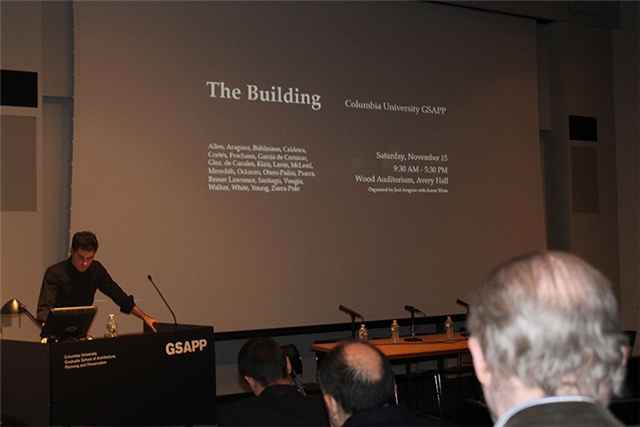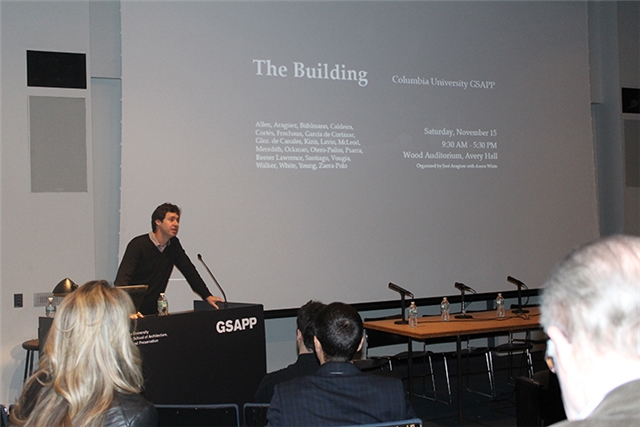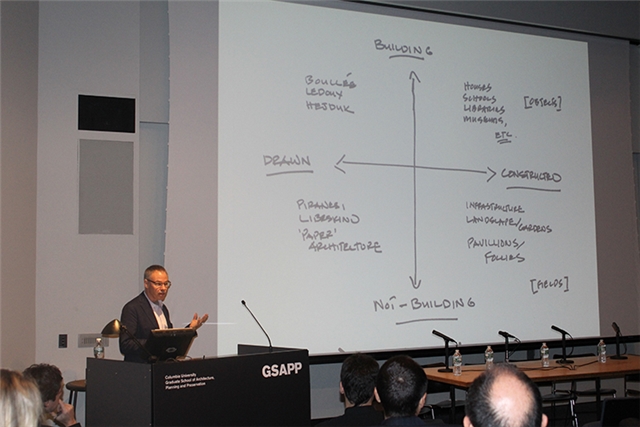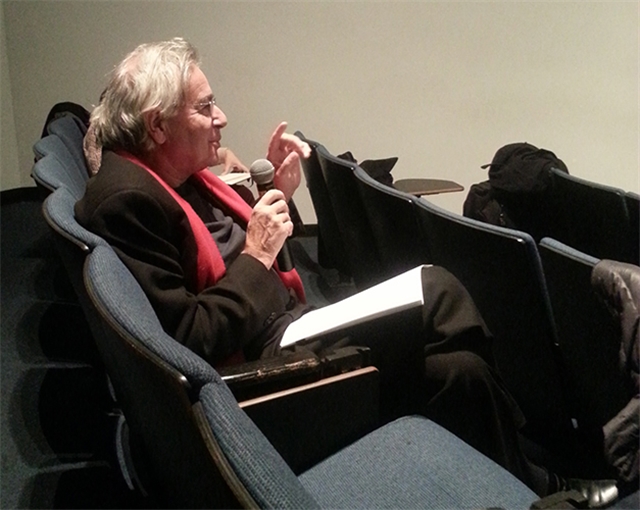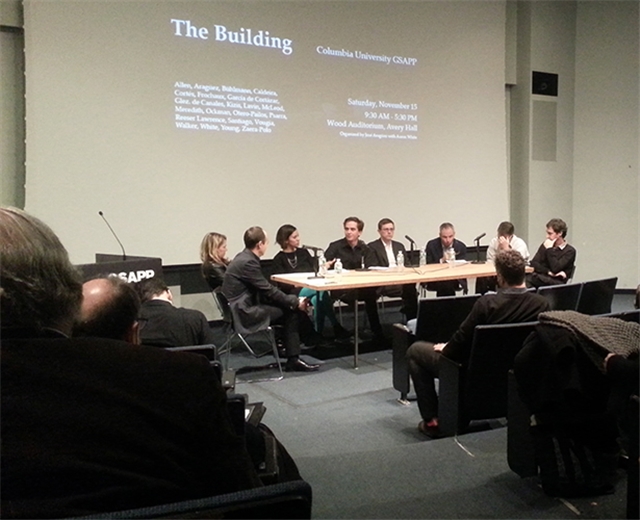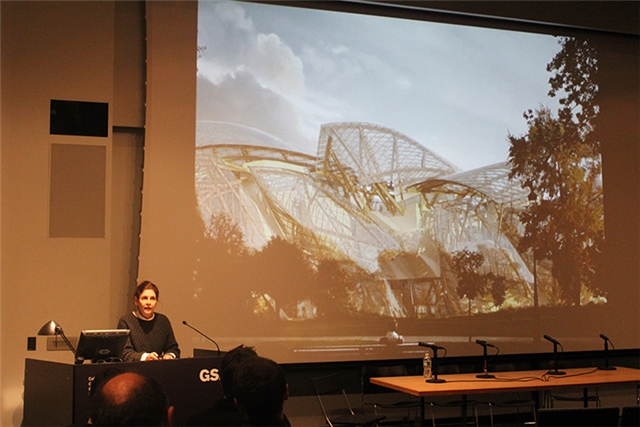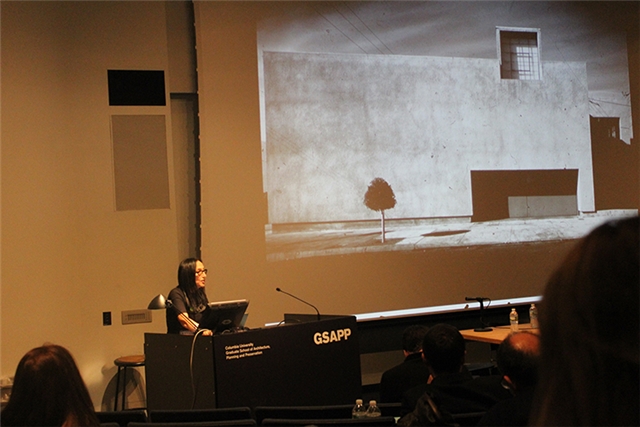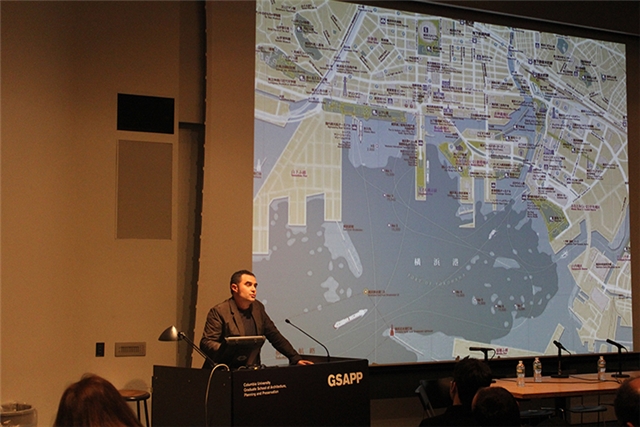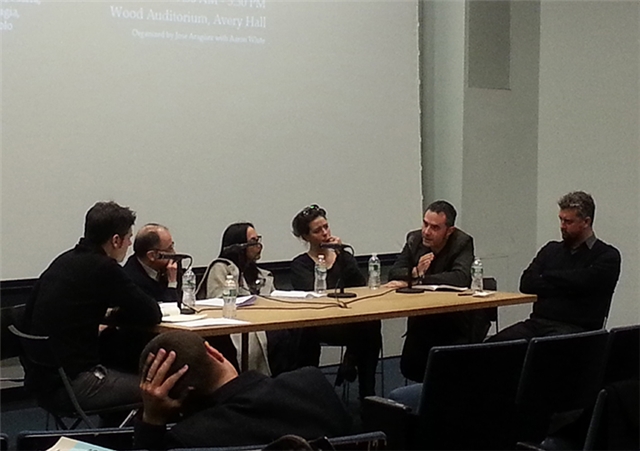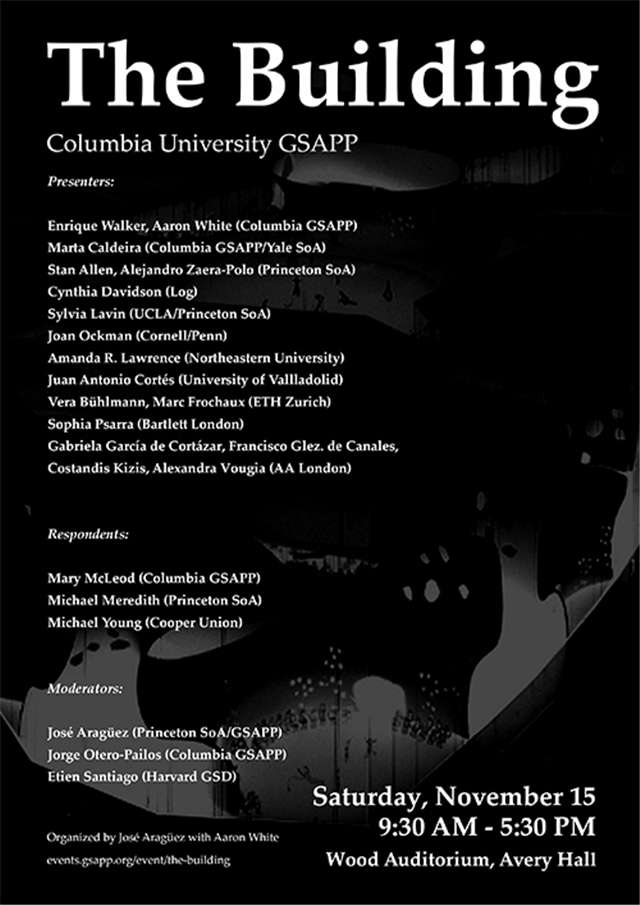"The Building" brought together a number of historians, theorists, architects and PhD candidates from both Europe and the U.S. for an exchange around the problem of the building as a form of knowledge. Each participant was asked to choose a building, built or designed within the last 25 years, which they could show embodied a historically significant contribution in terms of a particular design aspect or a concept relevant to the reading of buildings in general. Participants were also invited to speculate on the possibility for such a design technique or concept to become the seed of a metadisciplinary theoretical framework—that is, one whose influence might extend beyond architecture into other domains in the humanities and the social sciences. Presentations were requested to be around 7-minute long; round table discussions took up 45 minutes to an hour each. The overall aim was to produce discursive knowledge by recasting architectural design thinking as a central realm of historical and theoretical research. The Building’s agenda was presented as follows:
Ever since the theoretical turn of the 1960s, right through to the present, the status of the architectural object in the sphere of history, theory and criticism keeps taking on more and more forms. Whether as the reification of power structures, as a facilitator of participatory processes, as the locus of phenomenological content, as the hypostatization of terms pertaining to other systems of thought, as a vehicle to reflect upon unmediated practices, as a catalyst to investigate the psychology of perception, as amenable to mirror processes in the natural world—its increasing epistemological diversification is an index for the growing sophistication of our field. Within this tendency, however, the object emerges more often as a medium through which to tap into another domain—if not as altogether absent—than it does as a realm of research in its own right. This project suggests that discussions taking the object as their primary concern can today extend the bounds of possibility for the production of discursive knowledge in a substantial fashion. In order to do so, it invokes the architectural object par excellence—the building.
The participants in this symposium comprised: With Stan Allen (Princeton), Jose Aragüez (Princeton & Columbia), Vera Bühlmann (ETH Zurich), Marta Caldeira (Yale & Columbia), Juan Antonio Cortés (University of Valladolid), Marc Frochaux (ETH Zurich), Gabriela García de Cortázar (AA), Francisco González de Canales (AA), Costandis Kizis (AA), Sylvia Lavin (Princeton & UCLA), Mary McLeod (Columbia), Michael Meredith (Princeton), Joan Ockman (Cornell & Penn), Jorge Otero-Pailos (Columbia), Sophia Psarra (Bartlett), Amanda Reeser Lawrence (Northeastern University), Etien Santiago (Harvard GSD), Alexandra Vougia (AA), Enrique Walker (Columbia), Aaron White (Columbia), Michael Young (Cooper Union) and Alejandro Zaera-Polo (Princeton). Organized by José Aragüez with logistic help from Aaron White. The first installment of this event took place at the Architectural Association in London on June 2, 2014.



